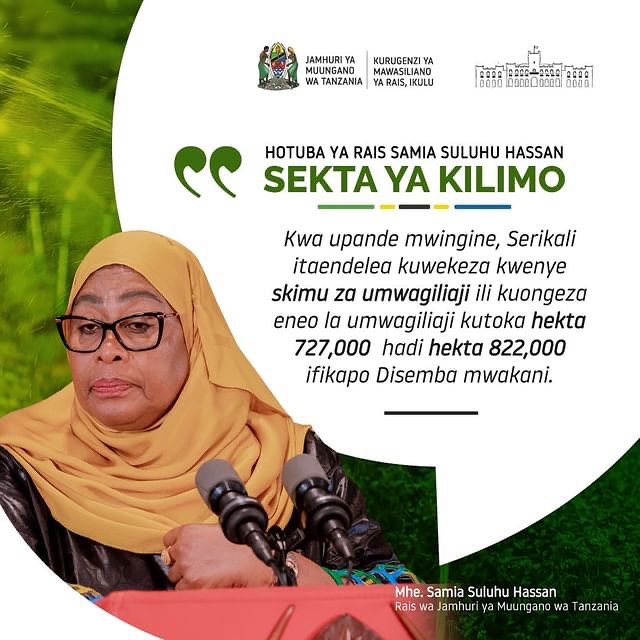Elizabeth Shumbusho
The 2024 Africa Agriculture Status Report (AASR), titled “Harnessing the Private Sector for Food Systems Transformation in Africa,” spotlights Tanzania’s significant strides in agricultural development and underlines the country’s evolving agrifood landscape.
The report reveals that Tanzania has experienced rapid growth in horticulture farming over the past 15 years. From 2008 to 2020, the proportion of farms cultivating fruits and vegetables in Tanzania more than doubled from 9.5% to 21%. This growth was most pronounced among small-scale farmers, whose participation increased from 8% to 20%, while medium-scale farms rose from 24% to 38%, and large farms from 16% to 26%. Overall, the area under fruits and vegetables expanded by 130%, adding 240,000 hectares, with tomatoes accounting for half of this growth. By comparison, the area dedicated to cereal production increased by only 27%(AASR2024-0309202401).
Vegetable Clusters and Market Expansion
Tanzania’s vegetable clusters have emerged as a model of spontaneous, market-driven growth, catering primarily to domestic markets. Key clusters of irrigated tomato farms and micro, small, and medium-sized enterprises (MSMEs) have developed in the central regions (Morogoro-Dodoma), the Southern Highlands (such as Iringa), and the eastern region near Dar es Salaam. These clusters are strategically located in areas with favorable climates, soils, water availability, and proximity to highways, facilitating the efficient distribution of produce to cities and rural areas nationwide
Urban and peri-urban fair value (FV) wholesale markets play a critical role in Tanzania’s agricultural value chains, connecting rural producers with urban consumers. The rapid spread of these markets has kept pace with urbanization and rising incomes. In 2023, a survey identified 55 FV wholesale markets across eight cities in Tanzania, of which 31 sold tomatoes wholesale. These markets, most established in the past 30 years, represent significant public investments in creating an enabling environment for agriculture
Government Support and Private Sector Collaboration
While the Tanzanian government has not directly established tomato farms or managed vegetable marketing and input distribution, it has played a crucial role in infrastructure development. The government has invested in building roads and supporting the establishment of vegetable wholesale markets, enabling the private sector and MSMEs to thrive. This partnership between public investment in infrastructure and private sector entrepreneurship has been vital in transforming Tanzania’s agrifood landscape.
Sunflower Sector Growth and Agro-Industrialization
Another key highlight from the report is Tanzania’s focus on developing the sunflower seed value chain under the Tanzania Agro-Industrialization Development Flagship (TAIDF). Since 2017, the government has implemented several measures, including tax exemptions on solvent extraction processing plants and oil refining equipment and increased import tariffs on palm oil and crude sunflower oil. These policies have spurred over 100,000 tons of new investments in sunflower seed processing capacity from medium to large-scale private sector companies
Digital Innovation and Financial Inclusion
Digital technology is also playing a transformative role in Tanzania’s agricultural value chains. Platforms such as ETC Agro and Hello Tractor connect smallholder farmers with agricultural machinery, making it more affordable to adopt advanced technologies. These innovations are increasing productivity and reducing costs, allowing smallholder farmers to access new markets and financial services more efficiently
Conclusion: A Call for Continued Investment
The AASR 2024 report urges continued collaboration between the Tanzanian government, development partners, and the private sector to further capitalize on these opportunities. By enhancing infrastructure, supporting MSMEs, and implementing effective policies, stakeholders can drive sustainable growth and resilience in Tanzania’s agrifood systems.
